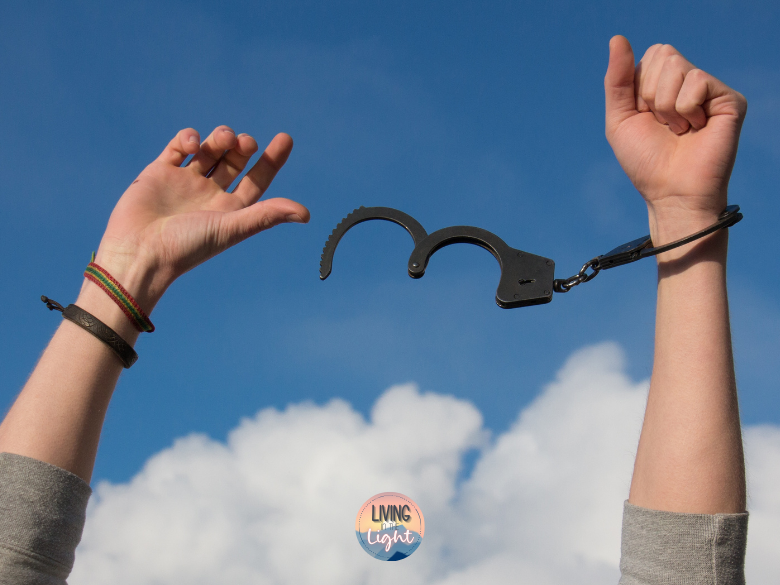Forgiveness is one of the most difficult commands in the Christian life, yet it is also one of the most liberating. The Bible makes it clear that forgiveness is not optional for believers. It is essential, both in our relationship with God and with others. Today we will look at what the Bible teaches about forgiveness.

God’s Forgiveness Toward Us
To understand what the Bible teaches about forgiveness, we have to look first at God’s mercy toward us in Christ. We cannot truly forgive others until we understand how much we have been forgiven by the Lord.
The following scriptures face the topic of God’s forgiveness of us:
• “If we confess our sins, He is faithful and just to forgive us our sins and to cleanse us from all unrighteousness.” (1 John 1:9)
• “As far as the east is from the west, so far has He removed our transgressions from us.” (Psalm 103:12)
• Jesus taught us to pray, “And forgive us our debts, as we forgive our debtors..” (Matthew 6:12)
Forgiveness is not earned — it is given. Just as God forgives us freely through the blood of Jesus (Ephesians 1:7), we are called to extend that same forgiveness to others.
(To Read About God’s Promises, Click Here)
Jesus Spoke About Unforgiveness
Jesus wanted everyone to know about the risks of having an unforgiving heart. In His Sermon on the Mount, Jesus laid out the model of all prayers and then immediately added:
• “For if you forgive men their trespasses, your heavenly Father will also forgive you. But if you do not forgive men their trespasses, neither will your Father forgive your trespasses.” (Matthew 6:14–15)
Jesus was not saying that we “earn” God’s forgiveness by forgiving others, but rather that a person who has been forgiven by the Lord will understand the importance of forgiving others. Refusing to forgive reveals that we have not fully received or even understand God’s grace (see Matthew 18:21–35, the Parable of the Unforgiving Servant).
Unforgiveness is spiritually dangerous because it keeps us chained to bitterness, pride, and judgment — the very things Jesus came to set us free from.
(To Read About the Model of All Prayers, Click Here)
The Call to Forgive Others
The Apostle Paul echoes Jesus’ command clearly in his epistles. In Ephesians 4:32 Paul states: “Be kind to one another, tenderhearted, forgiving one another, even as God in Christ forgave you.” Paul further adds in Colossians 3:13 that we need to practice “bearing with one another, and forgiving one another, if anyone has a complaint against another; even as Christ forgave you, so you also must do.”
Forgiveness is not based on whether the other person deserves it or not. It is based on the fact that because God has forgiven us, we need to forgive them, regardless of what they may have done.
The Benefits of Forgiveness
Forgiveness is about obedience to the Lord, and at the same time, it is about freedom. When we are truly forgiving, we release the negative affects unforgiveness has on us spiritually.

• Forgiveness sets us free from bitterness and resentment (Hebrews 12:15)
• There is peace in forgiveness (Philippians 4:6–7)
• Relationships are restored through forgiveness (Genesis 50:20, the story of Joseph forgiving his brothers)
• Forgiveness reflects Christ to the world (John 13:34–35)
While forgiveness heals us spiritually, it can also positively affect our physical health, as well. Medical studies even confirm that forgiveness lowers stress, improves mental health, and leads to greater well-being.
The Bible tells us in Galatians 5:1 that “It is for freedom that Christ has set us free.” Freedom both spiritually and physically and that includes through forgiveness.
(To Read What Jesus Did For You, Click Here)
Are You Holding Onto Unforgiveness?
If you are struggling with unforgiveness today, know this: you are not alone, and you do not have to carry that burden anymore. Jesus is calling you to lay it at the cross.
Ask yourself:
• Who do I hold bitterness against in my heart?
• Where am I refusing to extend the grace to others that God has given me?
Remember, forgiving others is not eliminating what they did to you or lessening the effect of their actions, rather, it is relieving you from harboring the pain and anguish that stems from the unforgiveness. If you want to break free from the grip that unforgiveness has in your life, pray honestly before God:
“Lord, I admit I have held onto unforgiveness. I release [this person – name them] to You. Help me to forgive them as You have forgiven me. In the Mighty Name of Jesus, I pray. Amen.”
Forgiveness may not erase the pain, but it begins the process of healing. When we forgive others, we are choosing freedom, obedience, and peace in Christ.

Final Encouragement:
Forgiveness is not weakness — it is victory. It breaks the cycle of sin, heals broken hearts, and testifies to the power of the Gospel of Jesus Christ. Don’t let unforgiveness keep you in chains another day. As Jesus said, “So if the Son sets you free, you will be free indeed.” (John 8:36) – call on Jesus to help you with unforgiveness. I promise you, He will.
Blessings,
Amy
I’d love to hear your thoughts! Please feel free to share your insights, experiences or questions in the comments section at the bottom of the page.












